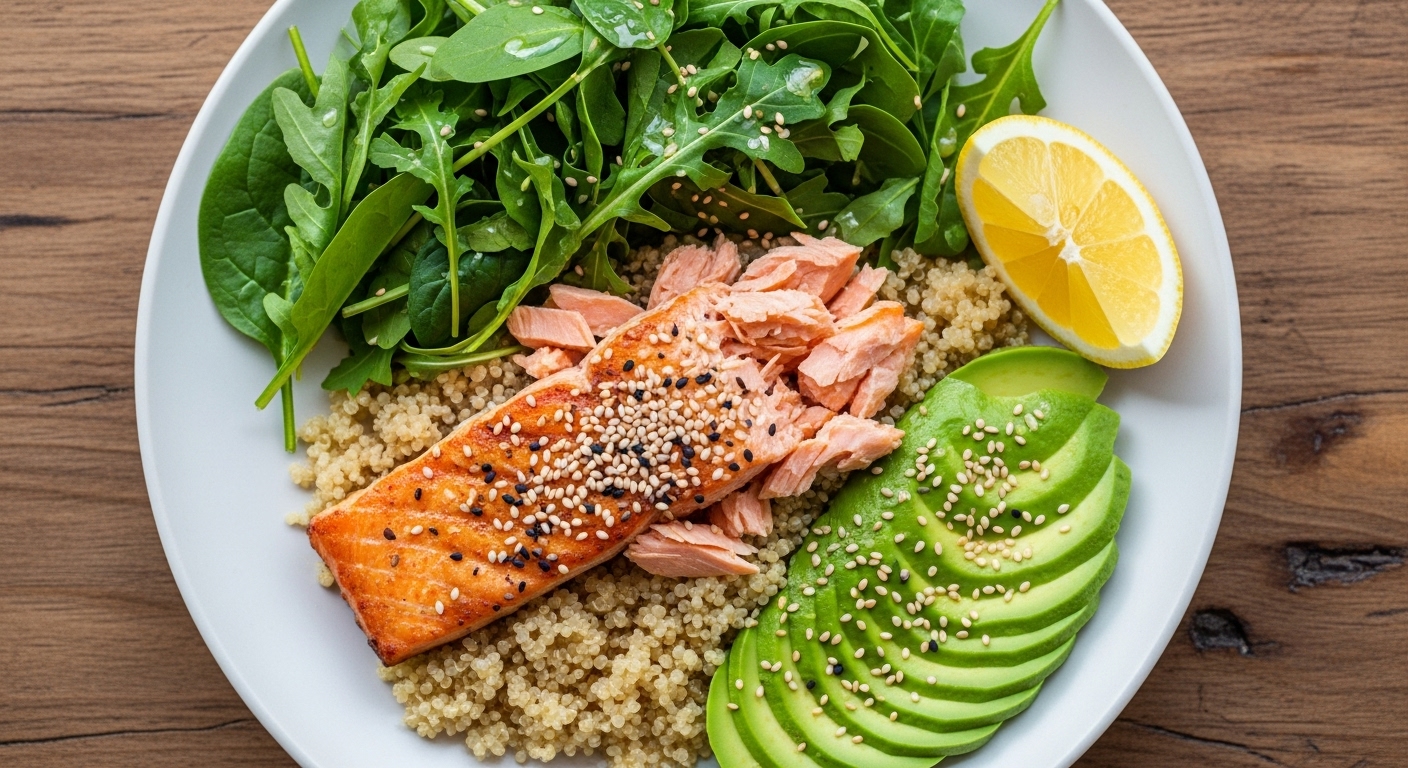Calcium isn’t just for strong bones—it also supports muscles, nerves, and heart health. Learn daily needs, deficiency signs, and the best food sources.
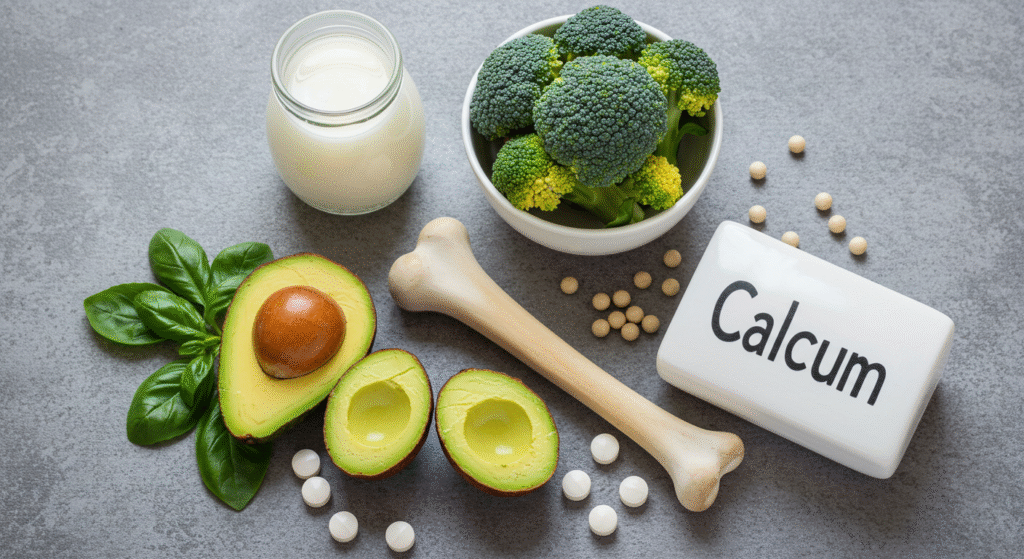
Why Calcium Is More Than Just a Bone Builder
When most people think of calcium, they think of bones—and yes, it’s true that calcium is essential for strong bones and teeth. But this mineral does so much more. It helps your muscles contract, your nerves send signals, and even keeps your heart beating steadily.
The problem? Many adults don’t meet their daily calcium needs, which can lead to weak bones and long-term health risks like osteoporosis.
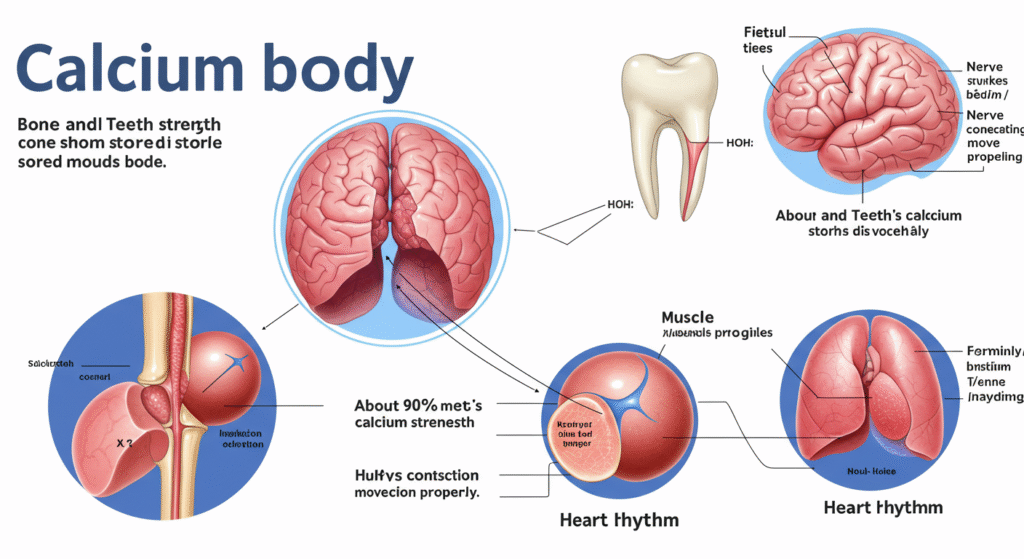
What Calcium Does in the Body
- Bone and teeth strength – About 99% of your body’s calcium is stored in bones and teeth.
- Muscle contraction – Helps muscles move properly.
- Nerve signaling – Supports communication between brain and body.
- Heart rhythm – Plays a role in cardiovascular health.
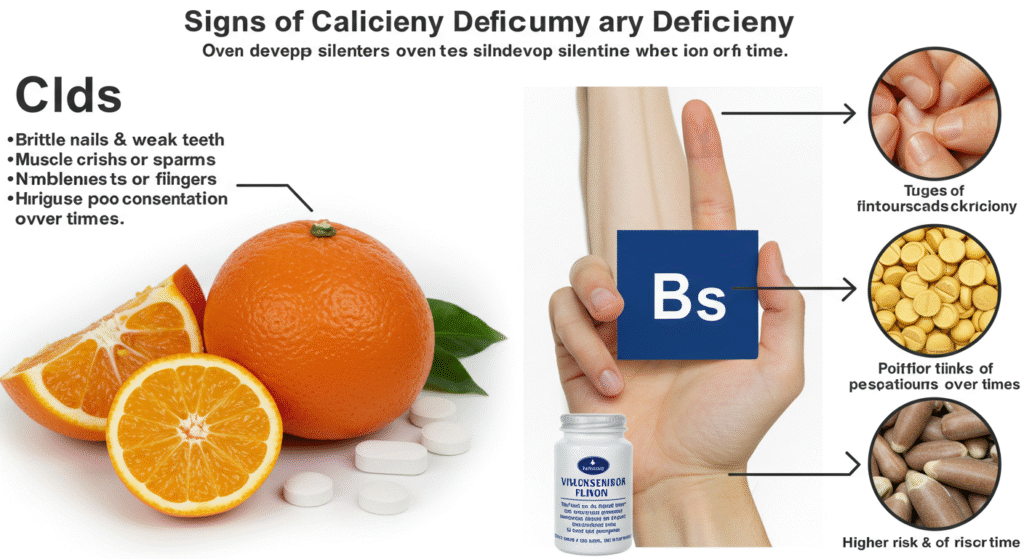
Signs of Calcium Deficiency
Deficiency often develops silently but may include:
- Brittle nails and weak teeth
- Muscle cramps or spasms
- Numbness or tingling in fingers
- Fatigue or poor concentration
- Higher risk of fractures over time
How Much Calcium Do You Need?
According to health guidelines:
- Adults 19–50 years: 1,000 mg/day
- Women over 50 & men over 70: 1,200 mg/day
- Teens & pregnant women: 1,300 mg/day
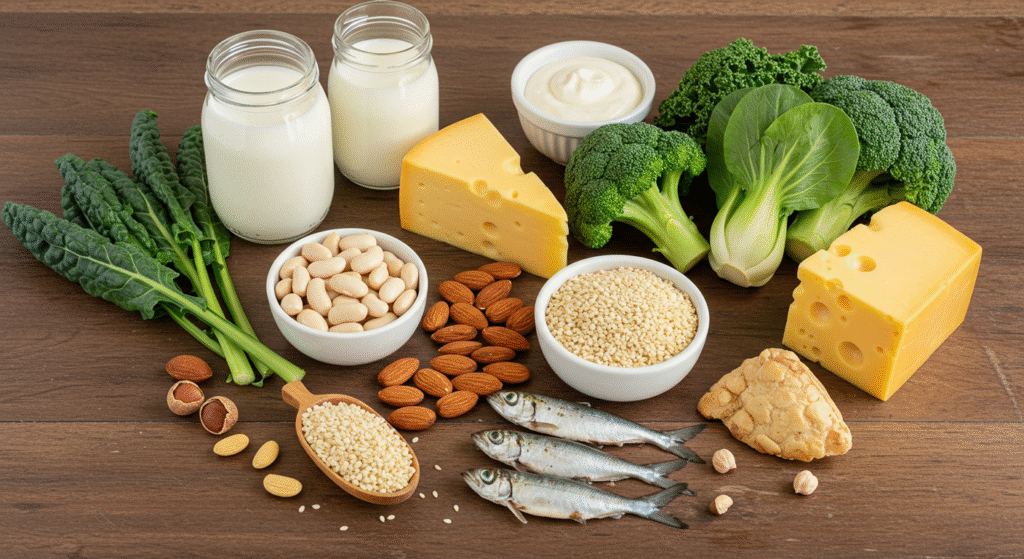
Best Food Sources of Calcium
Dairy (highly absorbable):
- Milk, yogurt, cheese
Non-Dairy Sources:
- Kale, broccoli, bok choy
- Almonds and sesame seeds
- White beans and chickpeas
- Fortified plant-based milks and orange juice
- Sardines and canned salmon (with bones)
💡 Tip: Pair plant-based sources with vitamin D (from sunlight, fatty fish, or fortified foods) to improve absorption.
When to Consider Supplements
If you struggle to meet your calcium needs through food alone, supplements may help—but avoid going overboard. Excess calcium can increase kidney stone risk or interfere with absorption of other minerals like iron and zinc. Always consult a healthcare provider before starting.
Final Thoughts
Calcium is a cornerstone of lifelong health—not only for bones but also for muscles, nerves, and heart function. By making calcium-rich foods a regular part of your diet and supporting absorption with vitamin D, you can build a stronger foundation for the future.





